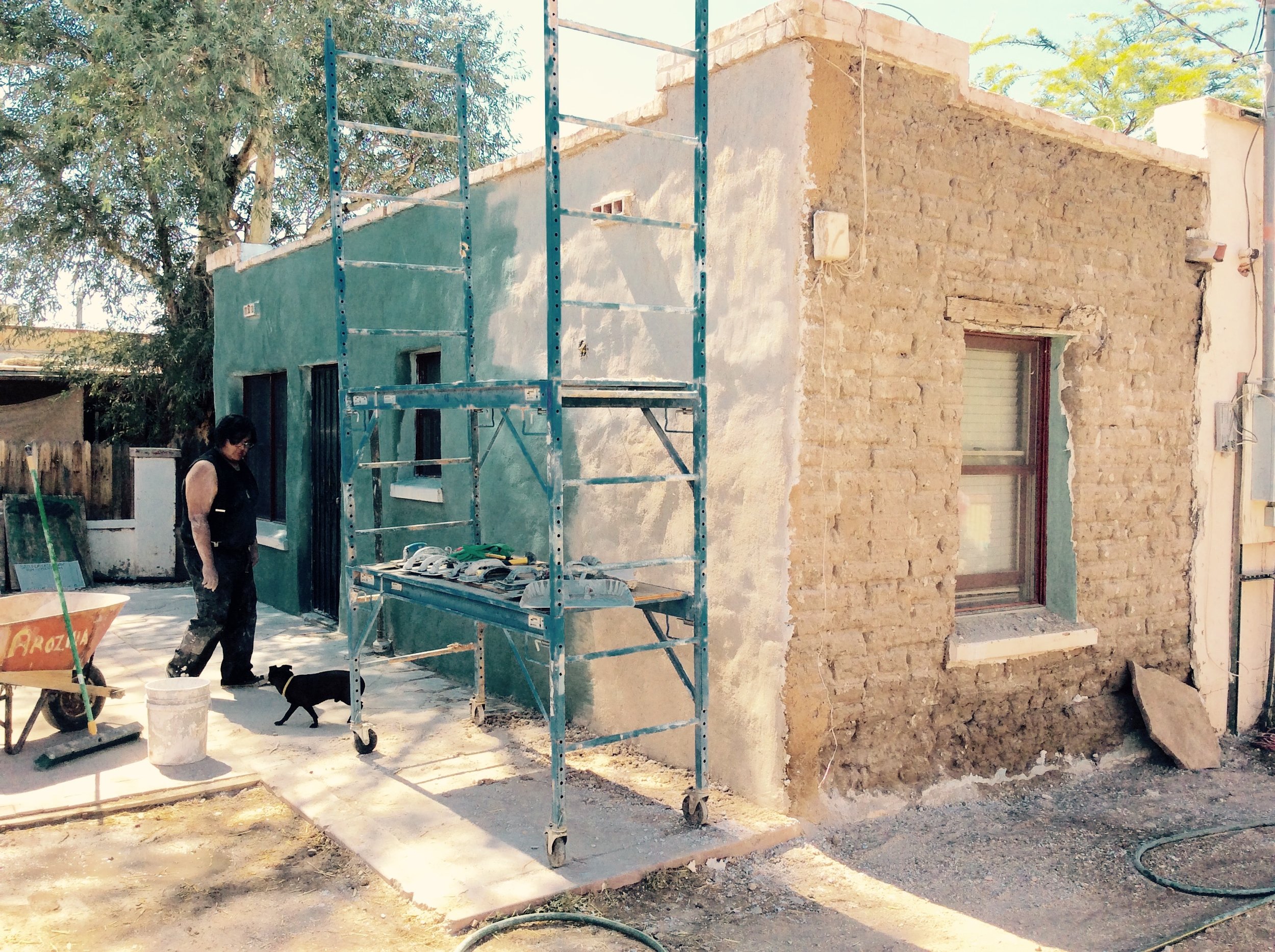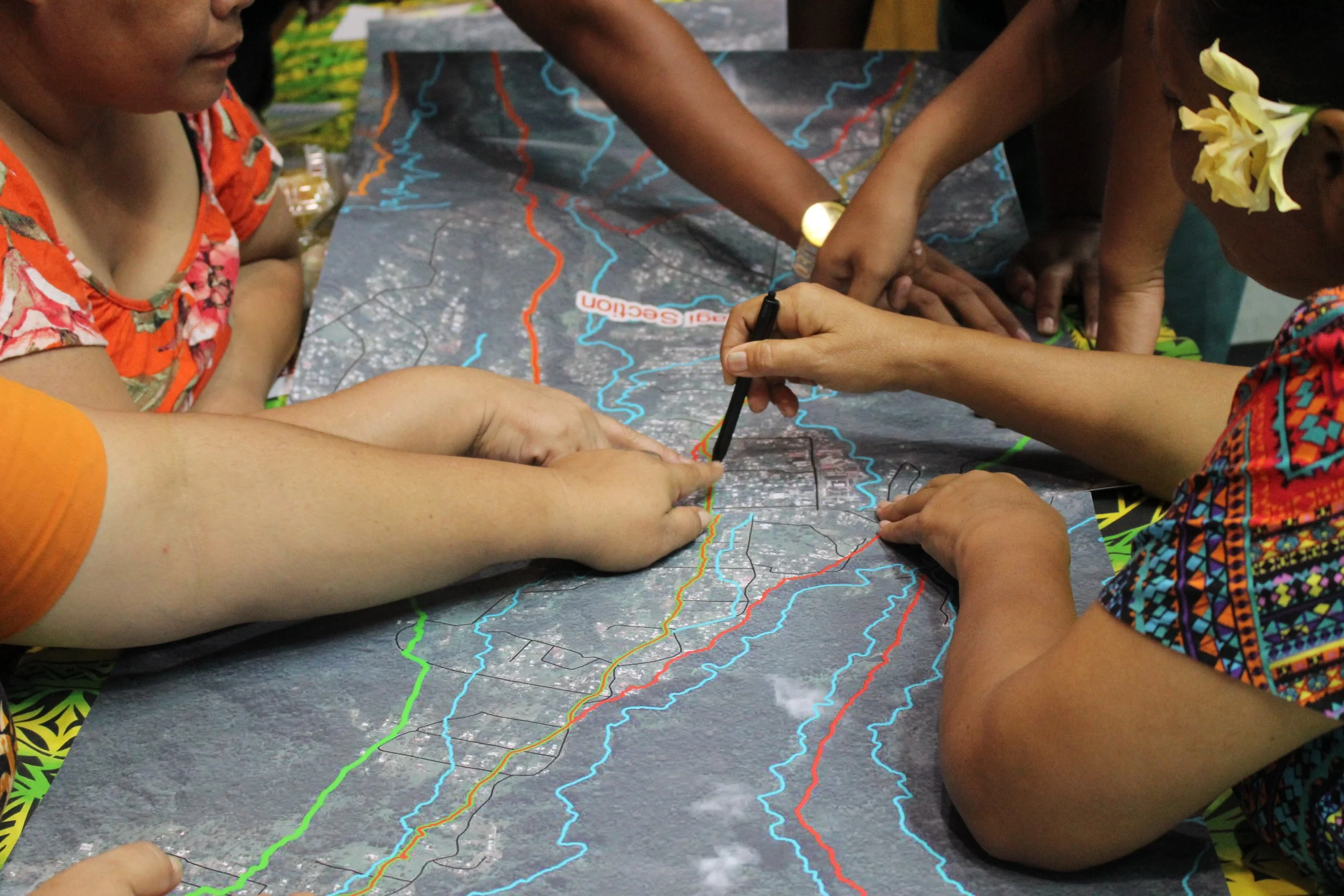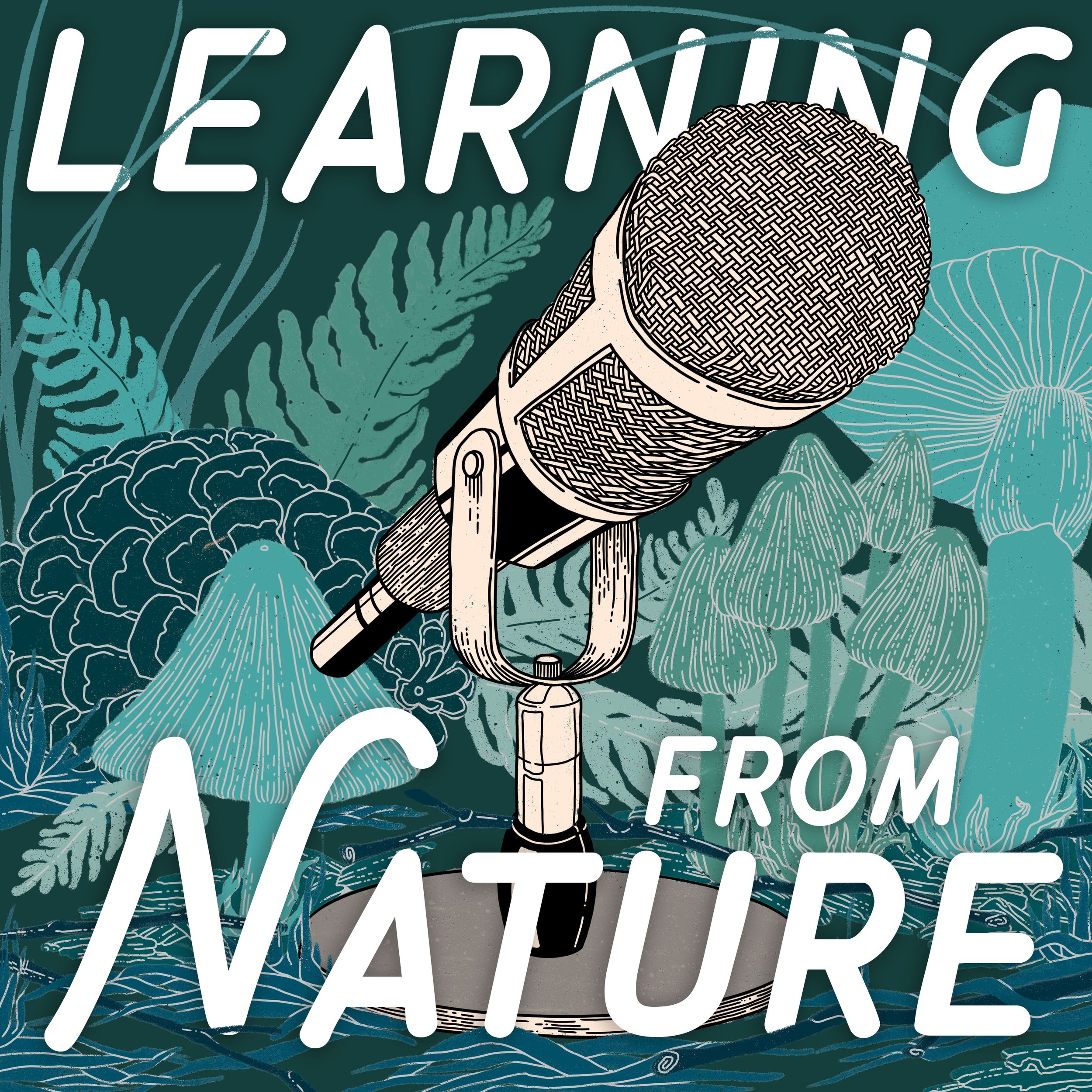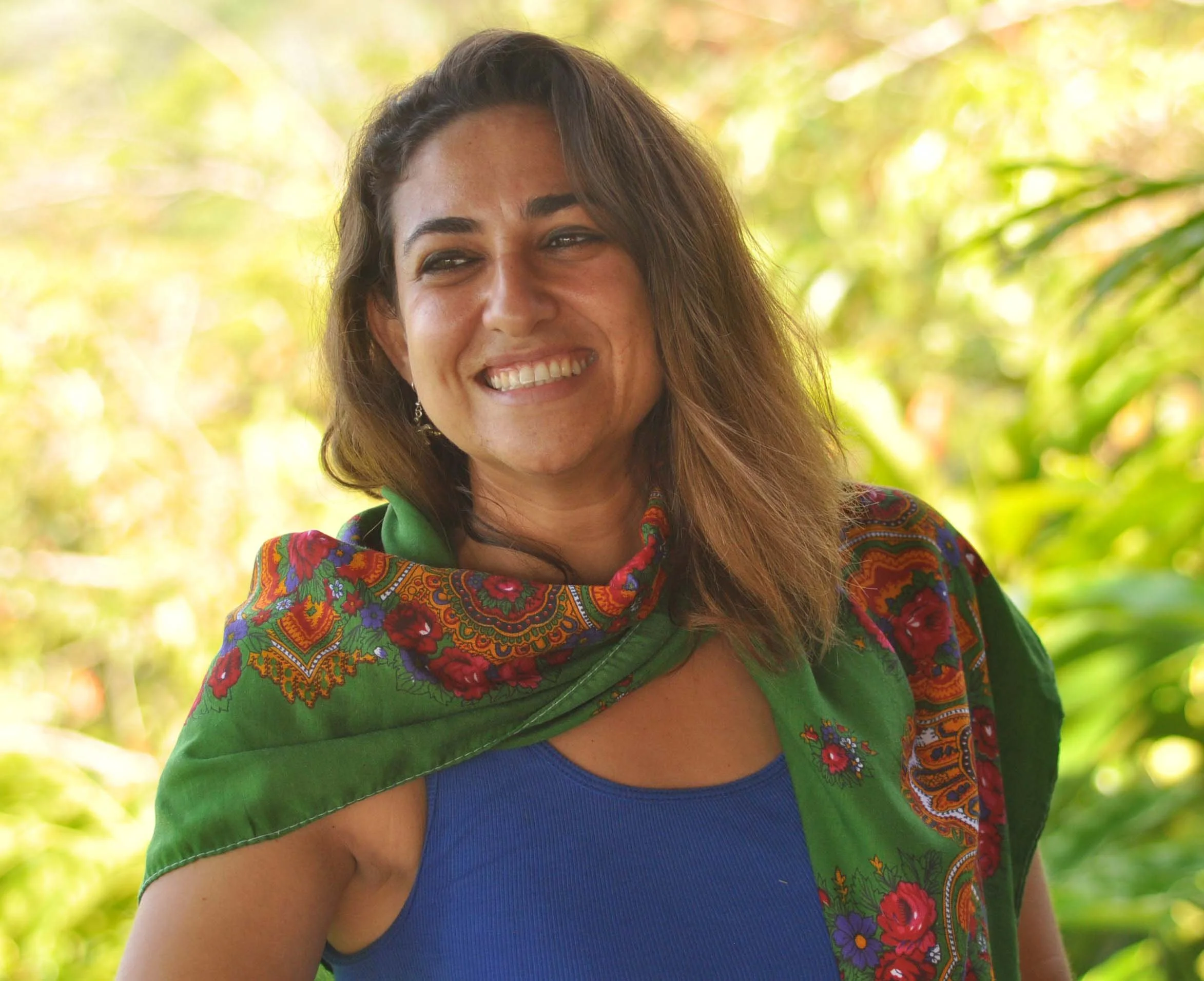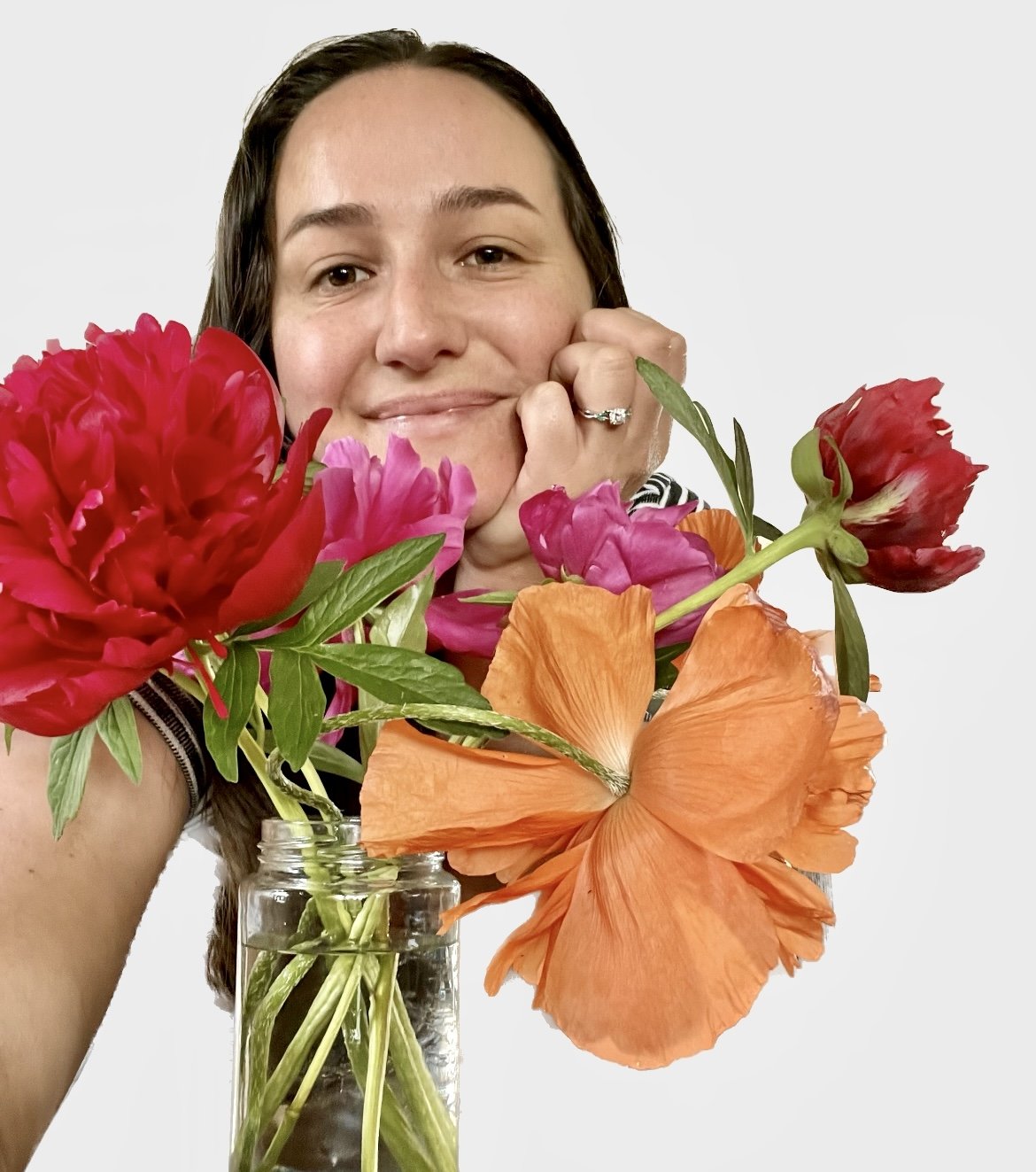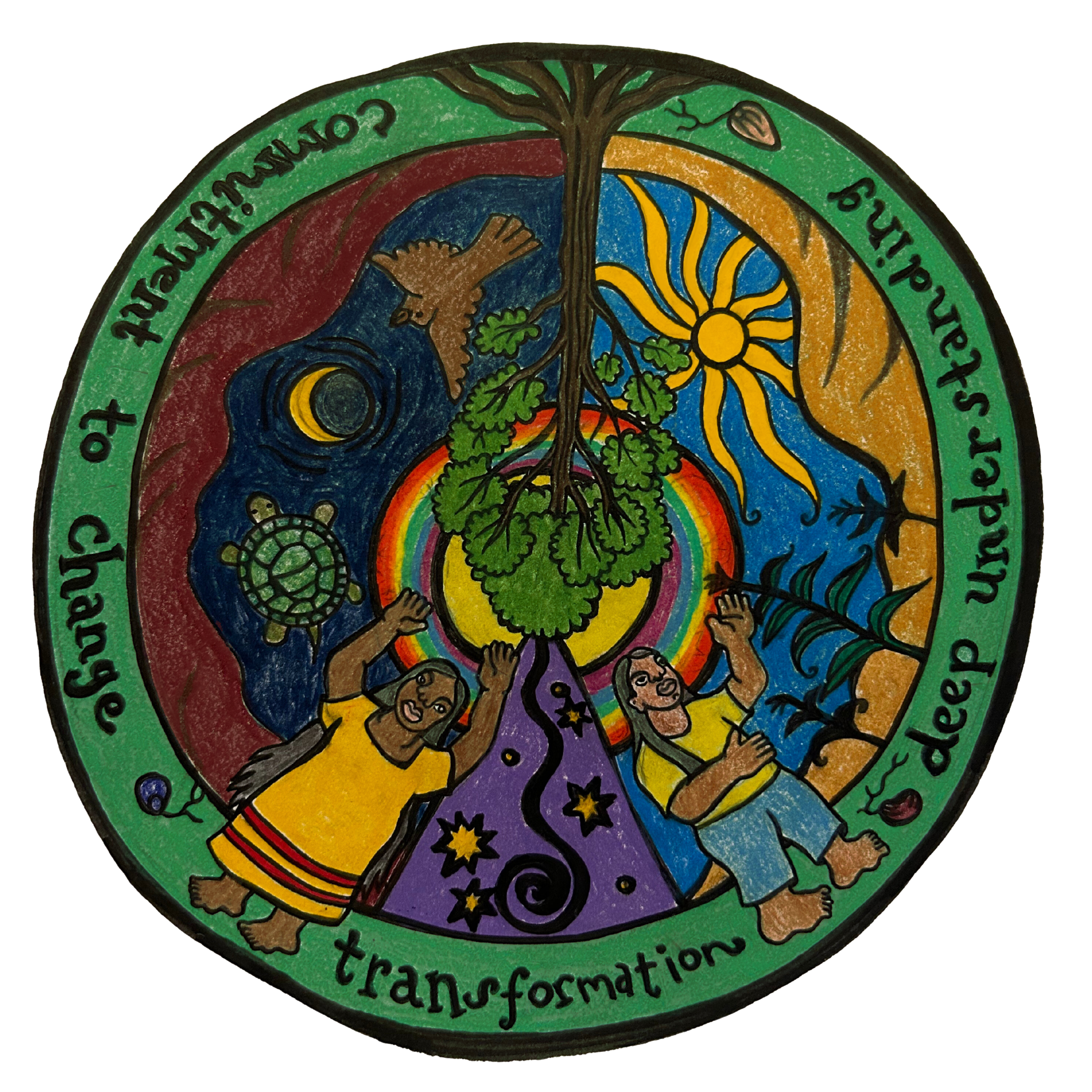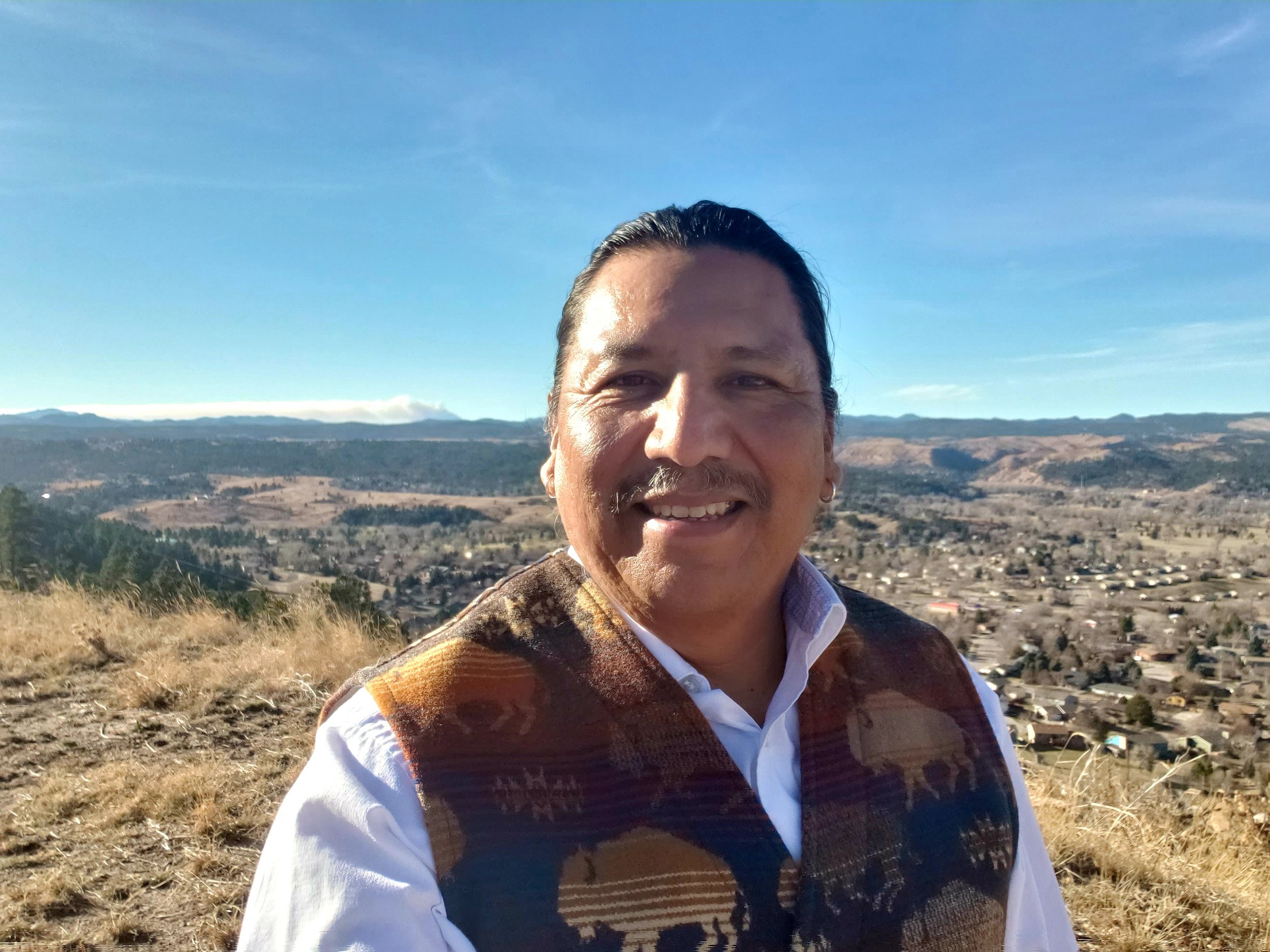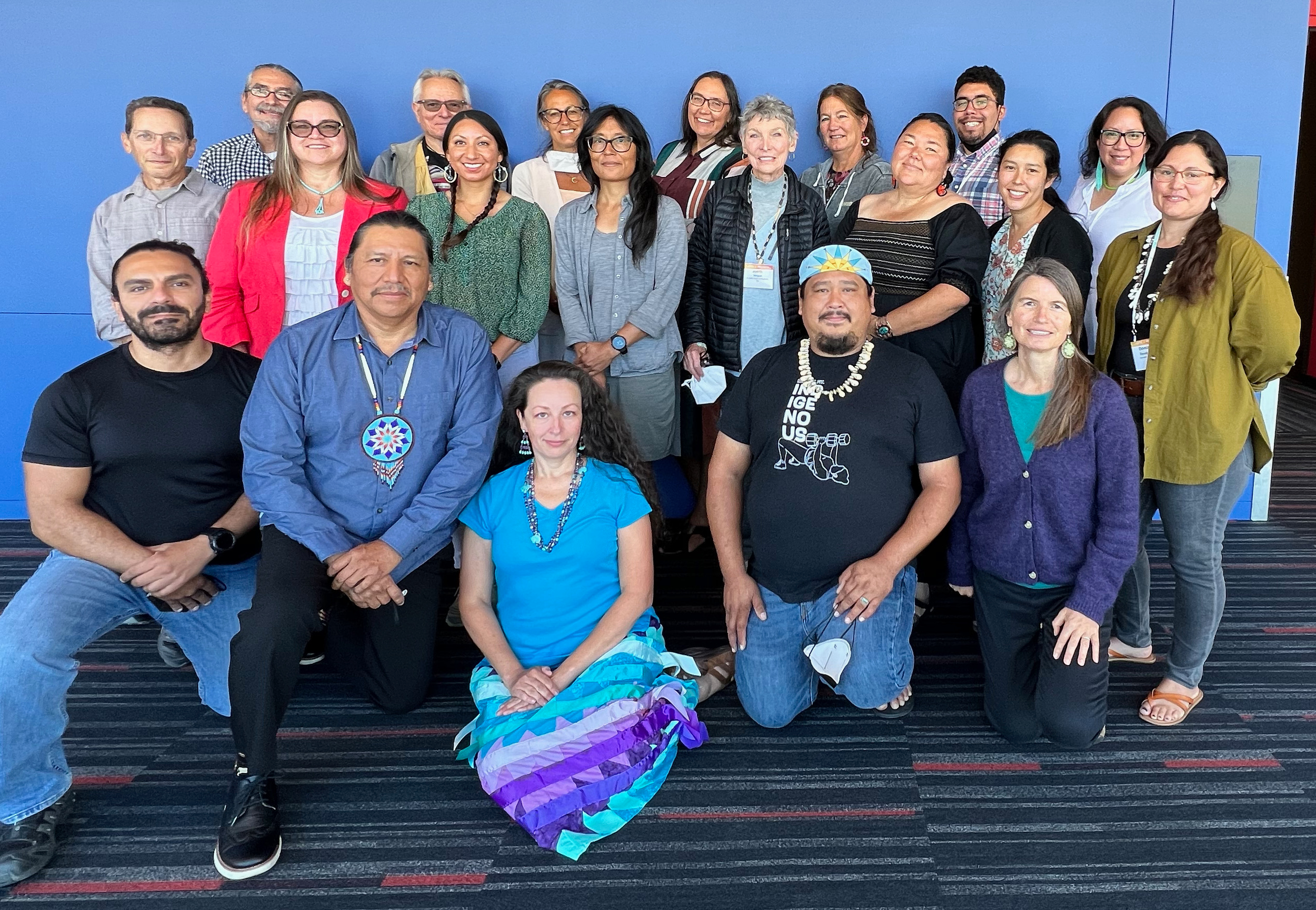Speaker: PennElys Droz and Maibritt Pedersen | Air Date: December 20, 2023 | Run Time: 65 mins | Season 4
Cover art by John Jairo Valencia
Knowledge Symbiosis with PennElys Droz and Maibritt Pedersen Zari
In the third episode of our limited series Knowledge Symbiosis: Can Biomimicry and Indigenous Science Harmonize?, PennElys Droz and Maibritt Pedersen Zari engage in conversation hosted by Lily Urmann, exploring cosmologies, paradigm shifts and how to be in good relationship while we co-create and design as humans within creation. They outline principles of regenerative design in communities, and how we all might engage in decolonization as well as learn from Indigenous ecological relationships.
Series Synopsis
This limited series, Knowledge Symbiosis: Can Biomimicry and Indigenous Science Harmonize?, is produced by The Cultural Conservancy’s Native Seed Pod in collaboration with Arizona State University and Learning From Nature: The Biomimicry Podcast. We invite dialogue from multiple perspectives—practitioners in biomimicry, and elders, practitioners, and Indigenous scholars—so we might better understand each other and explore opportunities to weave these learnings. These conversations delve into the ethics of science, human-nature connection, regenerative design, and our relationship to all other kin on this planet. Five episodes will be available on The Native Seed Pod and Learning From Nature: The Biomimicry Podcast for listeners to tune in and reflect. The episodes are hosted in rotation by Dr. Melissa K Nelson, Dr. Sara El-Sayed, and Lily Urmann, and feature conversations between Kim Tall Bear, Janine Benyus, Dayna Baumeister, PennElys Droz, Maibritt Pedersen, Anne LaForti, and Roxanne Swentzell.
“Maintaining your children’s ability to engage in that learning relationship with the living creation is a source of survival wisdom for the future. Start with whatever your community is, your community and then blow it out to the bioregion.”
About Pennelys Droz
Dr. PennElys Droz (she/her), Anishinaabe, and Wyandot descendent, is a Power Building & Curriculum Coordinator who has worked in Indigenous engineering and regenerative development for over twenty years, with the vision of the re-development of thriving ecologically, culturally and economically sustainable Native Nations; specializing in renewable energy, natural building, ecological wastewater treatment, whole-systems community infrastructure planning and design, and regenerative economy mapping.
PennElys holds a Master’s degree in Environmental Resource Engineering from Cal Poly Humboldt and a PhD in Biocultural Engineering Design, American Indian Studies from University of Arizona. She is a founding board member of Sustainable Nations, an Indigenous regenerative community development organization. A mother of five, she is committed to decolonial education and parenting that supports the reconnection of people with Land.
Tucson Indigenous Adobe Initiative at work
Photo credit: Maibritt Pedersen Zari taken by Maija Stephens for the NUWAO podcast series
About Maibritt Pedersen Zari
Maibritt Pedersen is an Associate Professor in the School of Future Environments at Auckland University of Technology, New Zealand.
Maibritt’s research sits at the interface between ecology and designed human experiences across spatial scales, from interior architecture and architecture, through to urban design. Because Maibritt Pedersen Zari sees humans as indivisible parts of living ecologies, her work considers how human wellbeing is interconnected with the health of the ecologies we exist within. To leverage these interconnections for increased wellbeing (of all) is the work of regenerative design. Maibritt Pedersen Zari’s research explores how understanding ecosystems can be used to define tangible ecology-based metrics for sustainability or regenerative performance in the urban built environment, with particular regard to how climate change and continued loss of global biodiversity affects communities and built environments.
Her expertise includes biomimicry and architecture, biophilic design, urban ecosystem services, ecosystem-based adaptation and nature-based solutions, urban climate change resilience and adaptation particularly in the Pacific, regenerative design, and design for urban biodiversity. Currently she is the Primary Investigator for the Marsden funded project ‘Wellbeing through Nature-based Design: Co-designing Climate Change Adaptation in Oceania’ and leads a complex and diverse team aiming to develop nature-based urban design solutions, rooted in Indigenous knowledges that support climate change adaptation and individual and community wellbeing in different contexts across Oceania.
about lily urmann
Lily Urmann – a biomimic, educator, and nature communicator – is a graduate of the Biomimicry Master’s program at Arizona State University, and received her Bachelor’s degree in Environmental Studies at The University of California, Santa Cruz. She wrote her undergraduate thesis on "Integrating Biomimicry Into Higher Education", which kickstarted her journey in the biomimicry and education space. Lily was the Program Coordinator at the ASU Biomimicry Center, where she helped to design and launch one of the world's first undergraduate certificates in biomimicry. During her time in Arizona, she guest lectured across campus, and has led community workshops at the Natural History Institute, the Desert Botanical Garden, and the Highland Center for Natural History. Lily is currently a Visiting Instructor at Pratt Institute where she teaches a course she created, titled "Biology for Biomimicry',' and runs after-school nature connection programs for The Kiva Center at Denver elementary schools. She is the creator and host of Learning from Nature: The Biomimicry Podcast. Lily’s ultimate passion lies at the intersection of biomimicry, place-based experiential education, and engaging change-agents in this exciting field
Photo credit: Apia field work image is taken by Maibritt in 2023 in Apia, Samoa at a participatory mapping workshop on climate change adaptation using nature-based solutions.
Photo credit: Image is by Samuel Dunstall and his project 'Katao o te maunga hokio ki te tai', who won a prize in the NUWAO Oceania Nature-based Urban Adaptation driven by Indigenous Knowledge Design Competition. Maibritt Pedersen is the project lead.
CREDITS
Host/Writer/Director: Melissa Nelson, Sara El-Sayed, Lily Urmann
Producers: Mateo Hinojosa, Sara Moncada
Co-producer: Raven Marshall
Audio Engineering: Colin Farish
Audio Recording: Melissa Nelson, Raven Marshall, Alexis Stanley
Episode cover artwork: John Jairo Valencia
Original Soundscapes and Songs
Soundscapes and Music Composed and Produced by Colin Farish
Listen to more of Colin’s music at colinfarish.com
This episode is being co-broadcast with Learning from Nature: The Biomimicry Podcast with Lily Urmann




